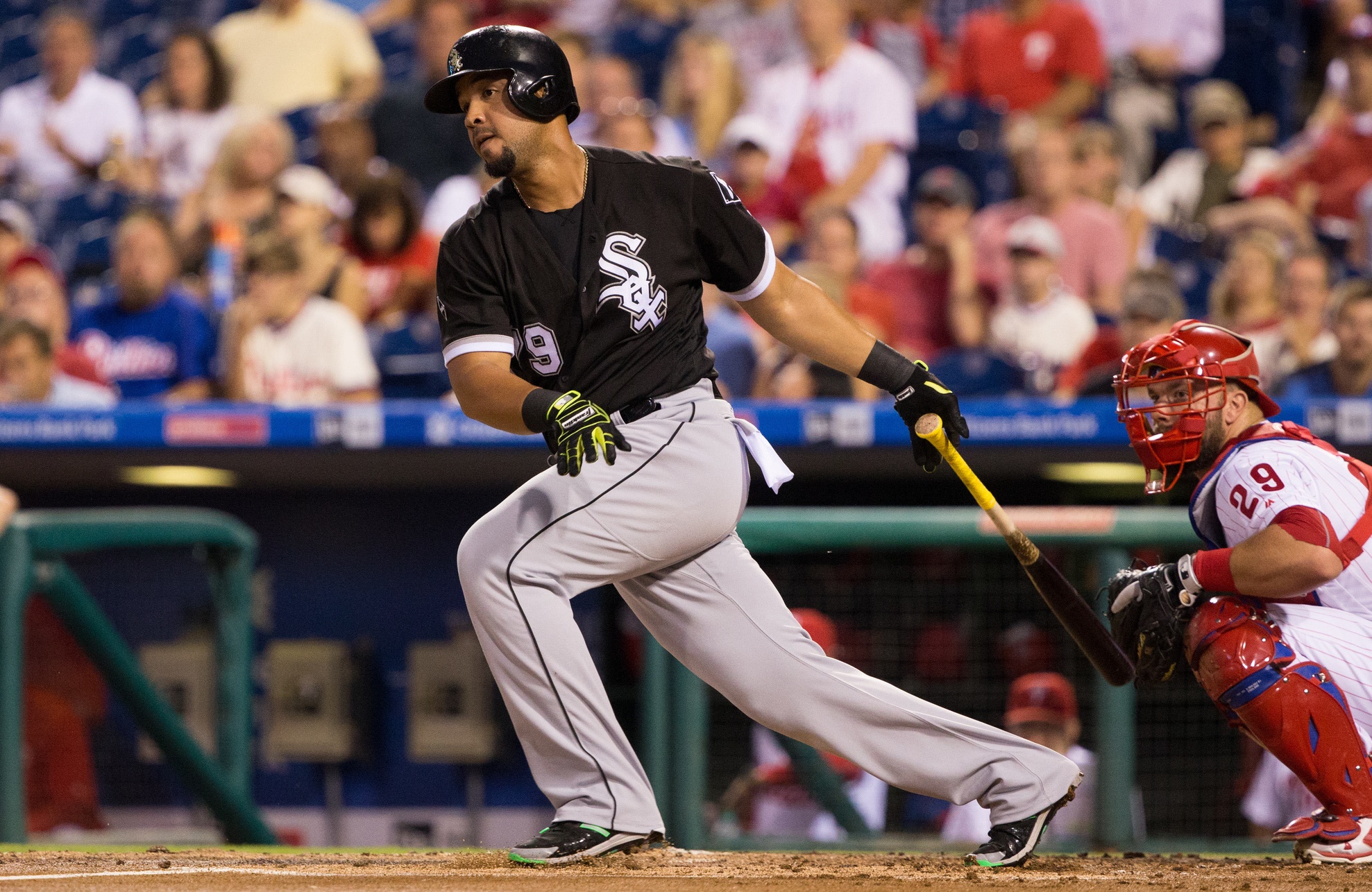Jose Abreu is by no means stingy with the press, but he doesn’t talk every day. He needs his interpreter, so his interviews take a bit longer, and he’s taken the natural step of determining a day or two ahead of time when he will speak. Just that little level of pomp and circumstance imbues Abreu’s public comments with a sense of purpose and intention that he may or may not intend. After all, three years in, we’re still trying to find what lies between his letter-perfect public persona and his prodigious on-field production, and any insight at all feels like a major one.
It’s into this context that Abreu’s surprising Monday comments injected the intangible into our autopsy of the 2016 White Sox.
“Abreu, who became the first player in White Sox history to hit 25 homers in his first three seasons, flatly said ‘no,’ his team doesn’t possess the same desire as the Royals. Perhaps in an attempt to not point fingers, Abreu also said through an interpreter: ‘I think it begins with me.’
‘I think it’s desire,’ Abreu said. ‘It’s desire to win. It’s their hunger to win games and to be good. For me, that is the main point for them.'”
If those comments seem unusually pointed for Abreu, then it should be no surprise he that he reportedly met with Robin Ventura afterward and walked his back his statements on the White Sox collective desire on Tuesday, doubling down on the self-critical element.
By the time reaction quotes started coming in from typically well-spoken Alex Avila and Adam Eaton, the Sox lack of “desire” had been normalized to being the typical disappointment that comes with a fourth-place finish, and in that sense is echoed by near all the important principals. Robin’s suggestion that Abreu might not have been perfectly translated is quite possibly the truth, but could also be a means of deflection (how much difference could there be from what he was trying to say? Was he trying to say they were unlucky and faltered through no fault of their own?).
Those in the clubhouse who Abreu may have been voicing frustration with have largely dismissed the comments as inoffensive. However, it’s hard to simply ignore Abreu’s comments, especially after he’s strained to project an image of faith in both the process and his colleagues throughout his three years on the South Side. He’s shown no desire to wring out the White Sox in public, which makes anything negative coming from him all the more notable. It’s an admission that something is wrong, and possibly in need of major overhaul.
While we here at BPSS disagree with Eaton’s assertion of “we thought we had the pieces” to go further-the roster had simply too many holes, most of which remain unaddressed – but the feeling of underachievement is clearly widely shared amongst those in the clubhouse.
It would be an overstatement to blame the feeling underachievement, and any evident lack of desire, entirely on Robin. While he hasn’t done much worth lauding, it’s not as if he somehow managed to undermine the motivation of the entire roster. But it doesn’t take insider access to see the trouble the White Sox have had within clubhouse this year, and those in charge will naturally be marked by what they failed to do: the conflicts they failed to mediate before they became public embarrassments, the on-field meltdowns they they failed to stanch, and the desire they failed to find. If the organization is looking for an overhaul of a team that has failed to compete for now four straight years, one has to imagine that these failures will be a large part of what will be addressed.
Lead Image Credit: Bill Strelcher // USA Today Sports Images

As much blame for the Sox failure lies with Abreu as with anyone. Sure, he’s “now” going to get his 100-RBI personal stats–accumulated during “mop-up” time. But back in the spring he wasn’t just average, he was terrible. It actually hurt having him in the lineup. He failed over and over with men on base, lunging at the ball constantly and grounding out weakly about 200 times. Even during the 23-10 start he didn’t help. So, look no further than Jose for “desire.”
As you point out, the timing of his slump didn’t really hurt the team all that much, as it coincided with their best play of the year.
But having a ~.700 something OPS for a few months is hardly as big of a problem as giving over 1000 PAs to replacement level players like Shuck, Avisail, Sanchez, Rollins, and Navarro, especially given that Abreu has recovered and will wind up posting a year within the bands of reasonable expectation for him.